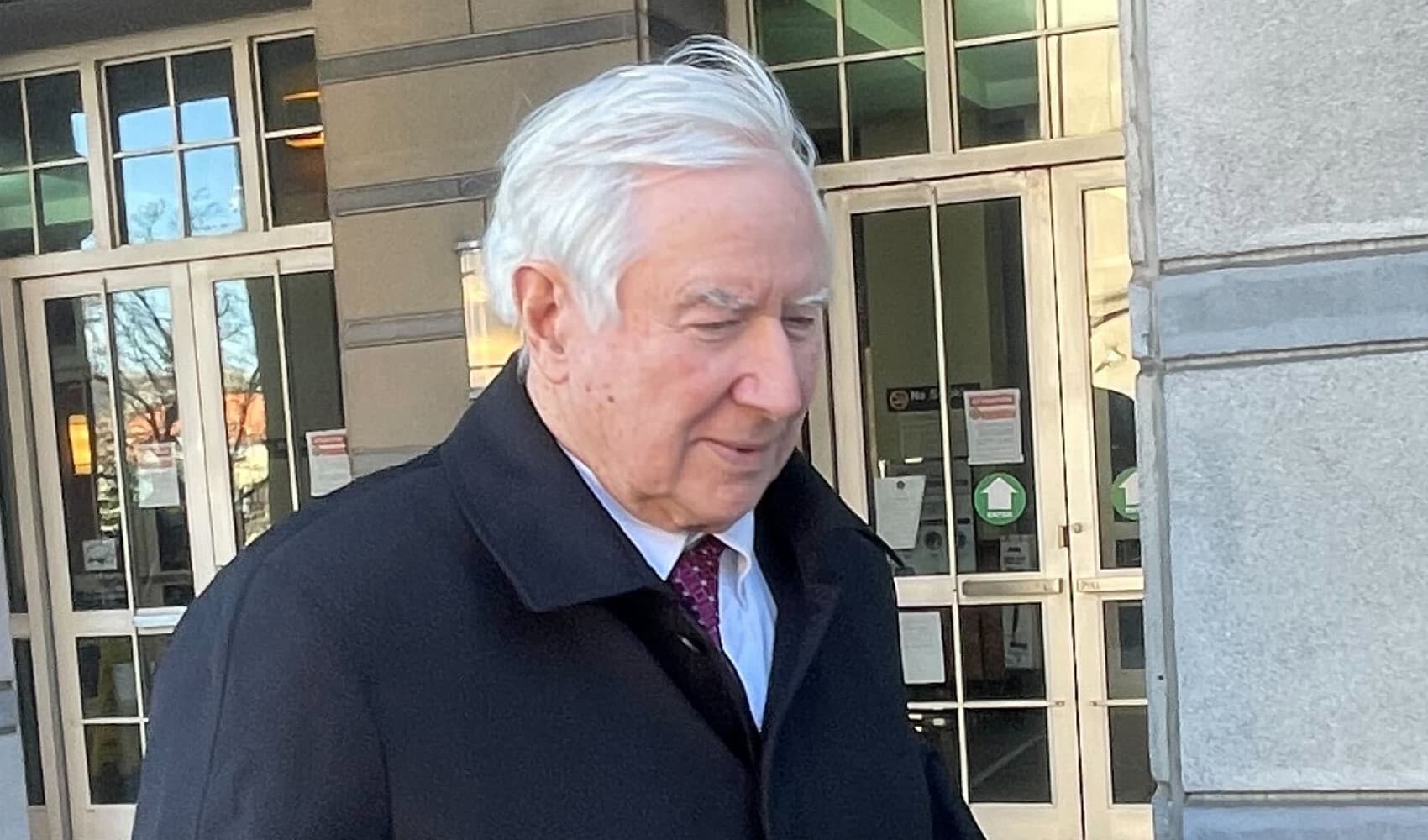NJ Deli Fraud: Father & Son Get Prison Sentences!
$100 Million Deli Dream Turns Sour: Father and Son Sentenced in NJ Fraud Case
Introduction: From Deli to Prison Cell
Have you ever heard of a small-town deli somehow racking up a $100 million valuation? Sounds like a tall tale, right? Well, in New Jersey, that's exactly what happened. This isn't your average mom-and-pop shop success story; this is a cautionary tale of audacious ambition, alleged fraud, and ultimately, justice served. This is the story of Peter Coker Jr. and Peter Coker Sr., the father-son duo at the heart of the infamous $100 million New Jersey deli fraud, and their recent sentencing to prison.
The Sentence is Handed Down
Peter Coker Jr. received a 40-month prison sentence for his pivotal role in orchestrating the scheme. His father, Peter Coker Sr., was sentenced to six months behind bars for his involvement. Their actions artificially inflated the share price of Hometown International, the company operating the deli, and a related shell corporation called E-Waste, misleading investors and reaping ill-gotten gains.
The Victim: Hometown International
So, what was this deli that became the center of such a scandal? Hometown International, the operator of a single delicatessen, became a publicly-traded company valued at an absurd $100 million. This eye-popping valuation raised eyebrows and sparked investigations that ultimately revealed the fraudulent scheme.
How the Scheme Worked
It wasn't the quality of the sandwiches that drove the price up. Instead, the Cokers, along with a third defendant, James Patten, used manipulative trading practices to artificially inflate the share price. This, in turn, created a false sense of value, attracting unsuspecting investors who poured money into the company, only to see their investments plummet when the truth came to light.
Vanderbilt and Duke: Unlikely Investors
Perhaps one of the most surprising aspects of this case is the involvement of prestigious institutions like Vanderbilt and Duke Universities. Both universities invested in Hometown International, a testament to the persuasive nature of the fraud and the allure of quick profits, even for sophisticated investors. They were lured into investing in a company formed as a merger candidate for private firms.
An Attack Behind Bars: Coker Jr.'s Ordeal
Adding another layer of drama to this already sensational case, Coker Jr.'s attorney revealed a brutal attack the defendant suffered while imprisoned in Thailand, awaiting extradition. Coker Jr. was reportedly set upon by as many as ten fellow inmates, highlighting the difficult and dangerous circumstances he faced before even reaching a U.S. courtroom.
The Extradition Process and Delay
Getting Coker Jr. back to the United States to face charges was no easy feat. The extradition process from Thailand proved to be lengthy and complex, delaying the legal proceedings and adding to the already considerable intrigue surrounding the case.
Patten's Role and Status
What about the third defendant, James Patten? His involvement remains a crucial part of the story, and his case is still developing. His cooperation, or lack thereof, could significantly impact future proceedings and potentially reveal even more about the inner workings of the fraudulent scheme.
The Impact on Investors
The real victims in this case are the investors who were duped into believing the hype surrounding Hometown International. Many individuals and institutions lost significant sums of money as a result of the inflated share price collapsing. This case serves as a stark reminder of the risks associated with investing in speculative ventures and the importance of due diligence.
Securities Fraud: A Closer Look
But what exactly is securities fraud? It's a broad term encompassing various deceptive practices used to manipulate the stock market and mislead investors. These practices can include insider trading, market manipulation, and false or misleading financial statements.
The Role of the Securities and Exchange Commission (SEC)
The Securities and Exchange Commission (SEC) plays a vital role in protecting investors and maintaining the integrity of the financial markets. The SEC's investigation into the Hometown International case was instrumental in uncovering the fraud and bringing the perpetrators to justice. They are the watchdogs of Wall Street, ensuring fair play and investigating potential wrongdoings.
The Aftermath: Lessons Learned
The $100 million deli fraud case has sent shockwaves through the financial world, serving as a cautionary tale for investors and entrepreneurs alike. The consequences of securities fraud can be severe, leading to imprisonment, hefty fines, and a lasting stain on one's reputation.
The Allure of Quick Riches and the Risks of Speculation
Understanding the Lure
Why do people fall for these schemes? The promise of quick riches is a powerful motivator. The desire to "get in on the ground floor" of the next big thing can cloud judgment and lead investors to overlook red flags.
Recognizing the Risks
What are the risks of speculation? Investing in companies with little or no track record is inherently risky. Without a proven business model or a solid financial foundation, these ventures are highly susceptible to failure.
Red Flags: Spotting Potential Fraud
Unrealistic Valuations
How can you spot a potential fraud? One key indicator is an unrealistic valuation. A company's market capitalization should be justified by its revenues, profits, and growth prospects. If a company is valued at millions despite having minimal sales, that's a major red flag.
Lack of Transparency
Another warning sign is a lack of transparency. Legitimate companies are typically open and forthcoming about their operations and financials. If a company is secretive or evasive, that should raise suspicion.
The Future of the Case
While the Coker's have been sentenced, the legal ramifications of this case are likely far from over. Civil lawsuits from defrauded investors could be on the horizon, and the investigation into other potential accomplices may continue.
Conclusion: Justice Served, Lessons Learned
Conclusion: Justice Served, Lessons Learned
The sentencing of Peter Coker Jr. and Peter Coker Sr. marks a significant milestone in the $100 million New Jersey deli fraud case. This saga serves as a stark reminder of the allure of quick riches, the importance of due diligence, and the consequences of securities fraud. The case highlights the vulnerabilities in the financial system and the need for vigilant oversight to protect investors from fraudulent schemes. Ultimately, while the sandwiches might not have been worth millions, the legal fallout certainly cost a pretty penny and valuable freedom.
Frequently Asked Questions
Here are some frequently asked questions regarding this case:
- What exactly was the $100 million New Jersey deli fraud? It was a scheme where the share price of a small deli business, Hometown International, was artificially inflated to an absurd $100 million valuation through manipulative trading practices.
- Who were the key individuals involved in the fraud? The key individuals were Peter Coker Jr., Peter Coker Sr., and James Patten.
- How did Vanderbilt and Duke Universities get involved? They invested in Hometown International, being misled by the inflated valuation and the promise of high returns.
- What are the consequences of securities fraud? Consequences can include imprisonment, hefty fines, and a damaged reputation, along with potential civil lawsuits from defrauded investors.
- What can investors do to protect themselves from similar schemes? Investors should conduct thorough due diligence, be wary of unrealistic valuations, and avoid investing in companies with a lack of transparency. Diversifying investments and consulting with financial advisors are also crucial steps.


